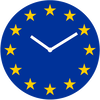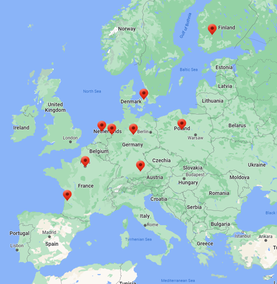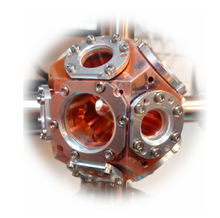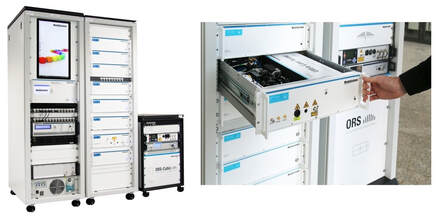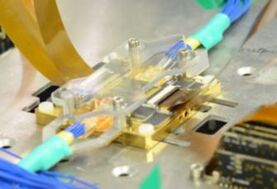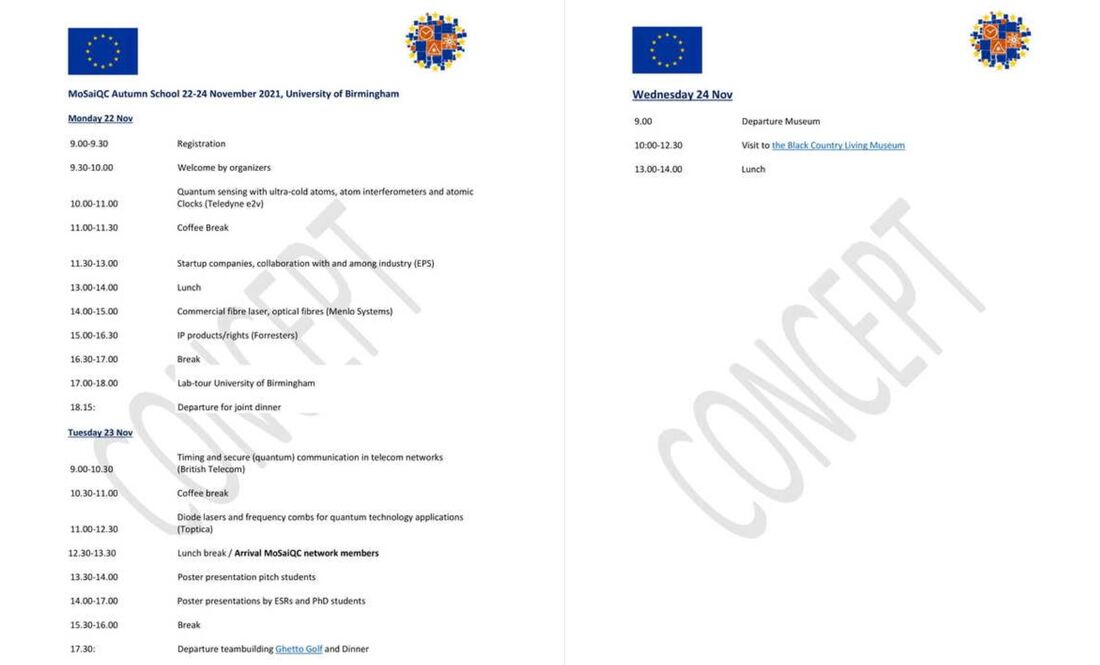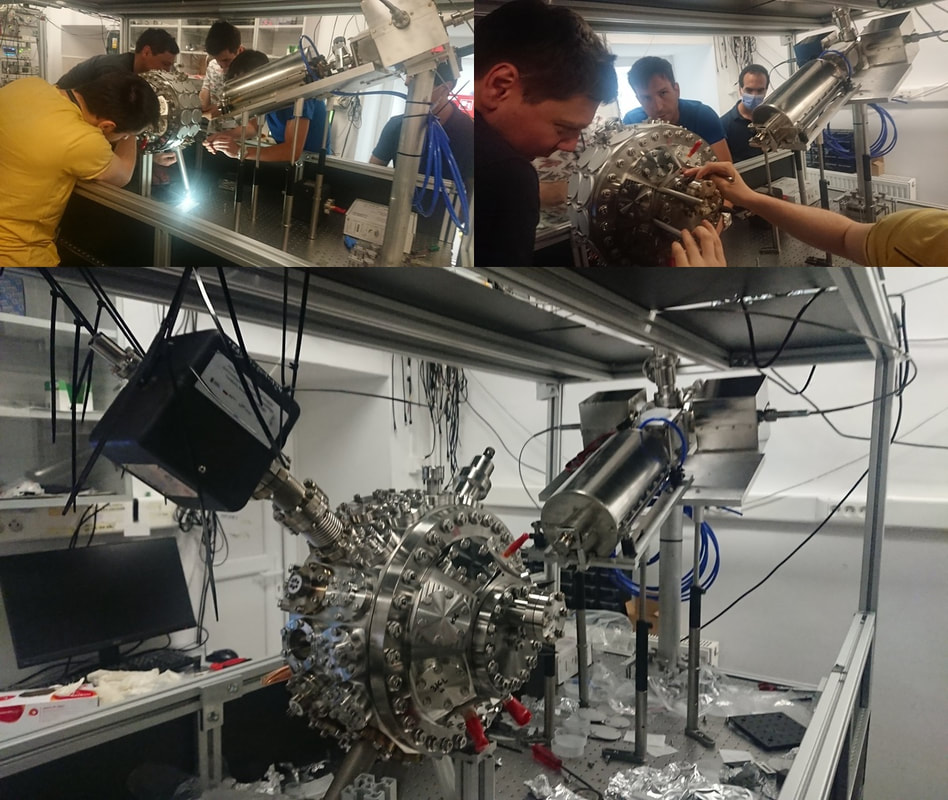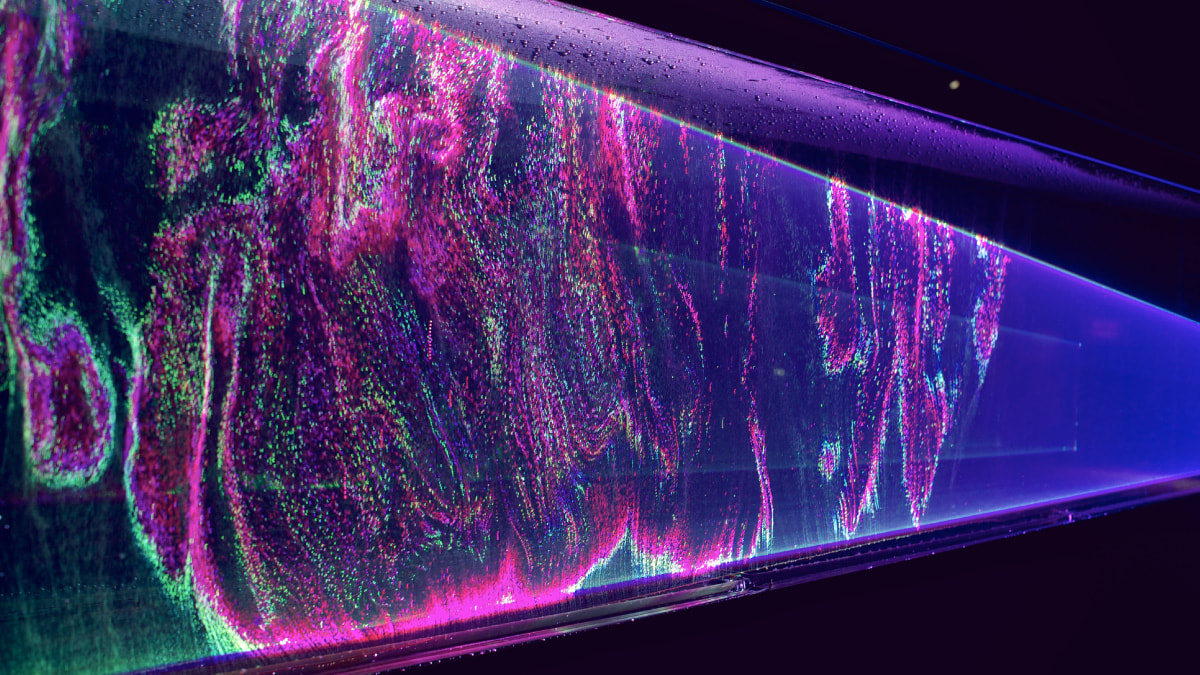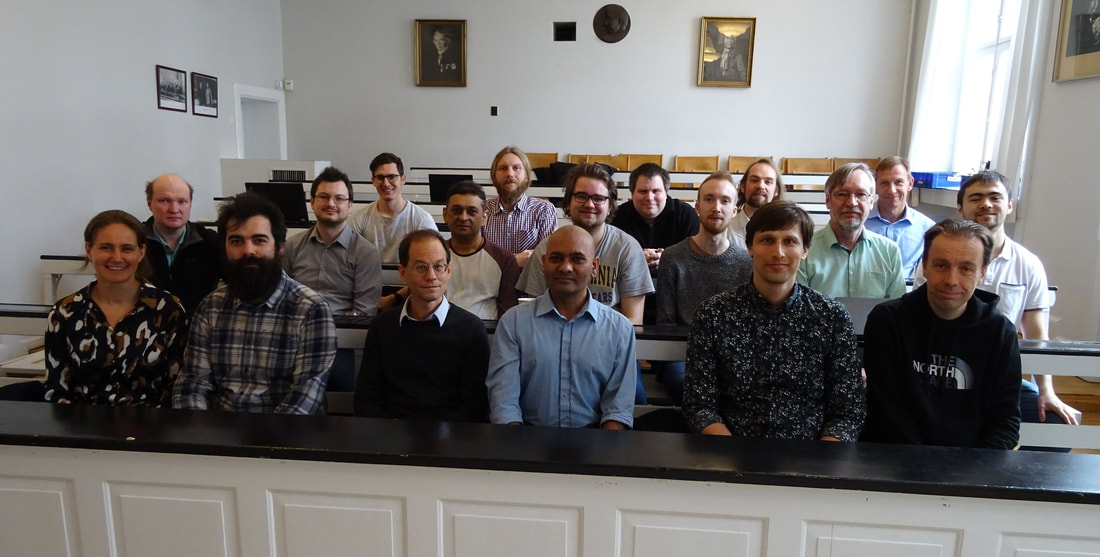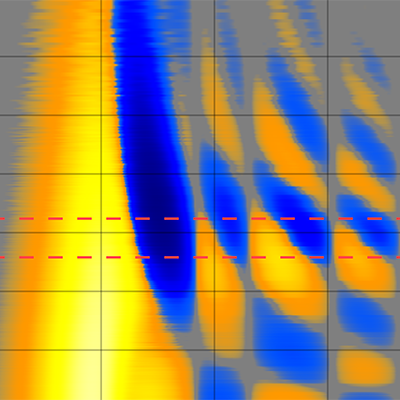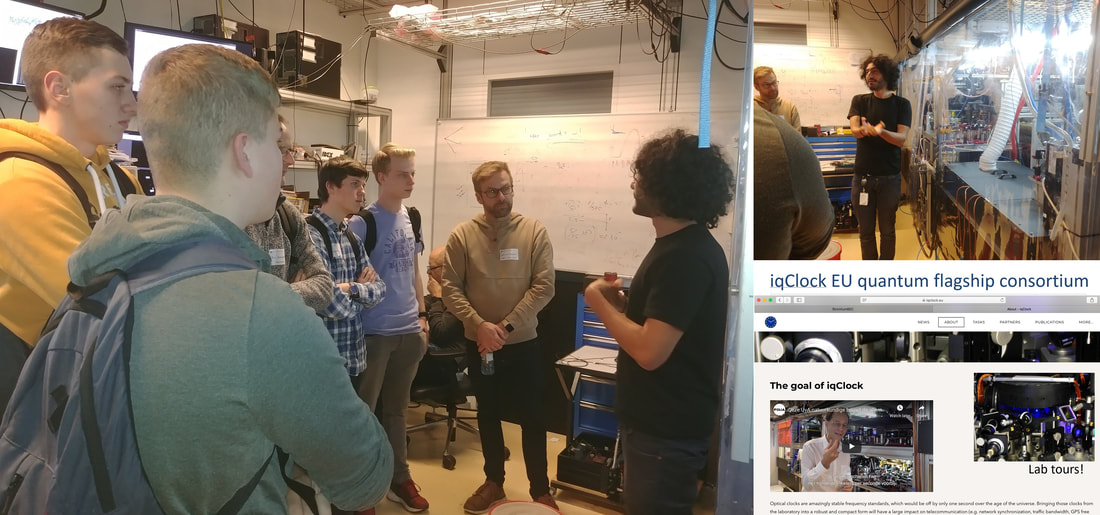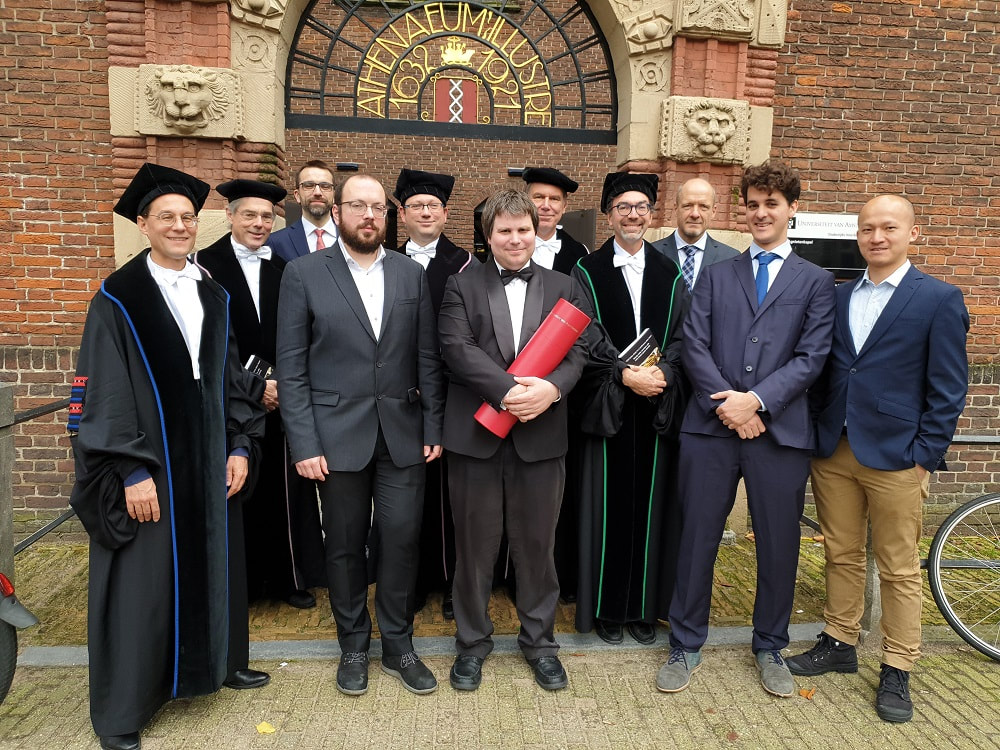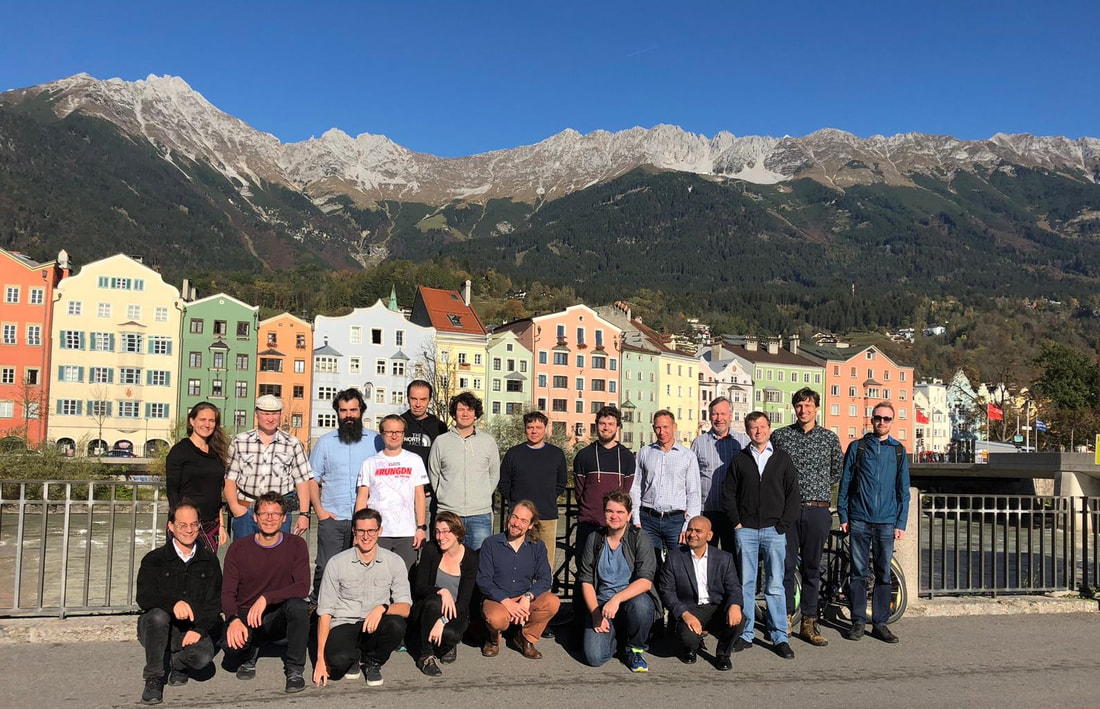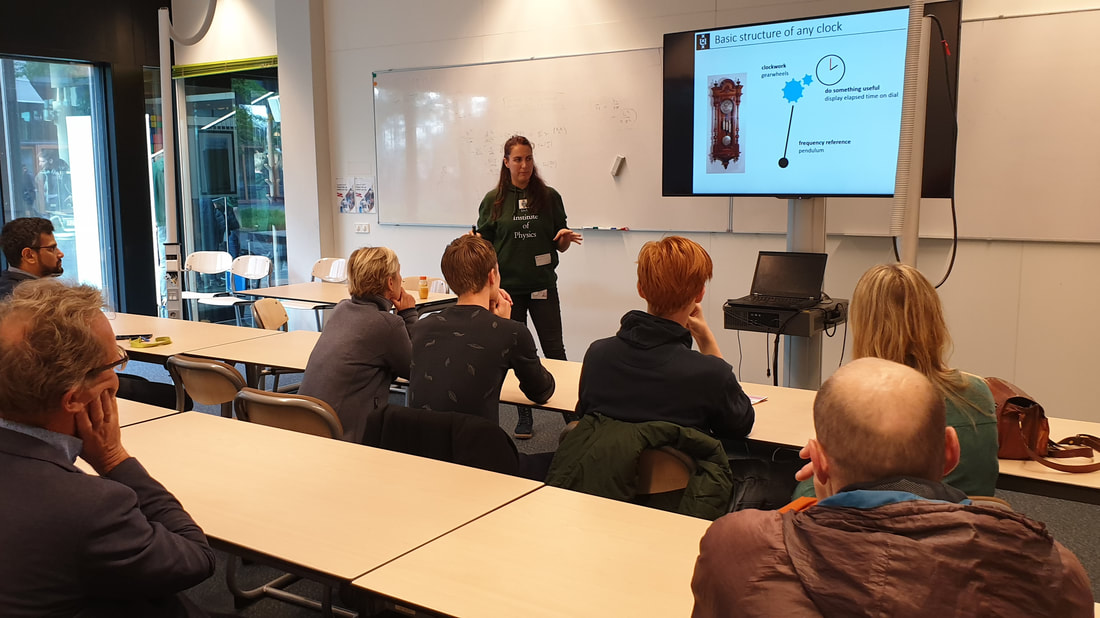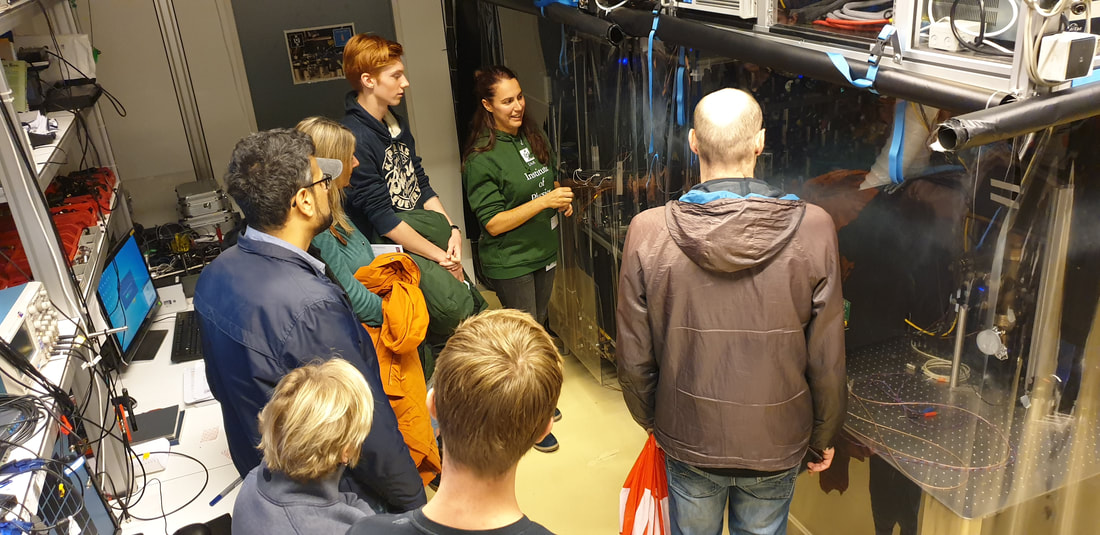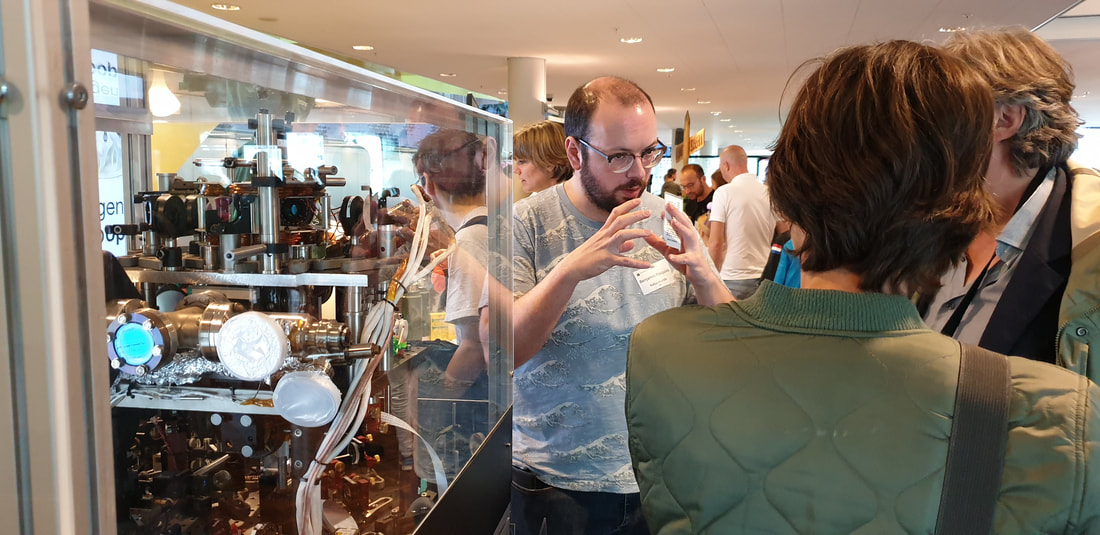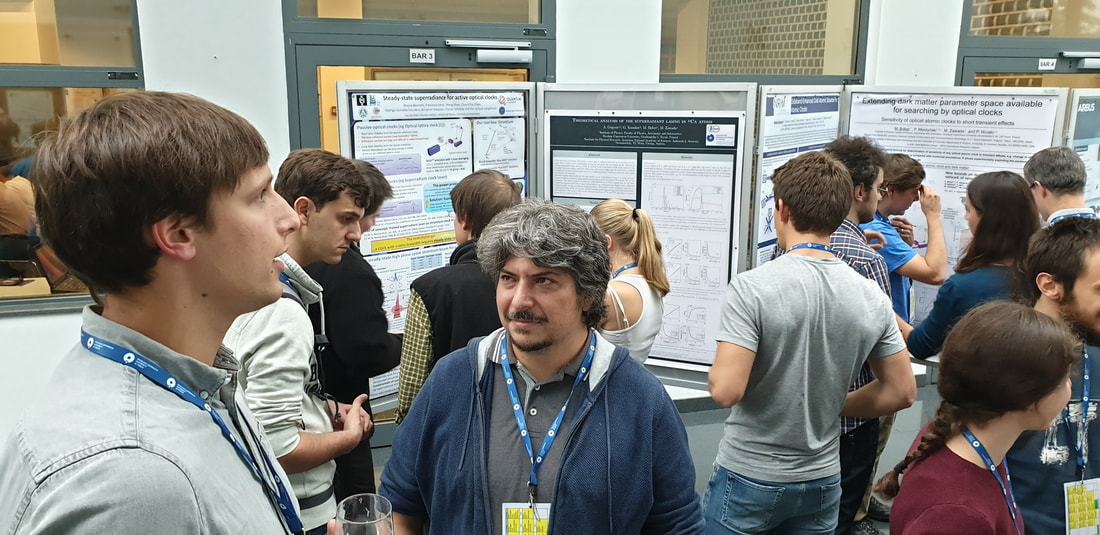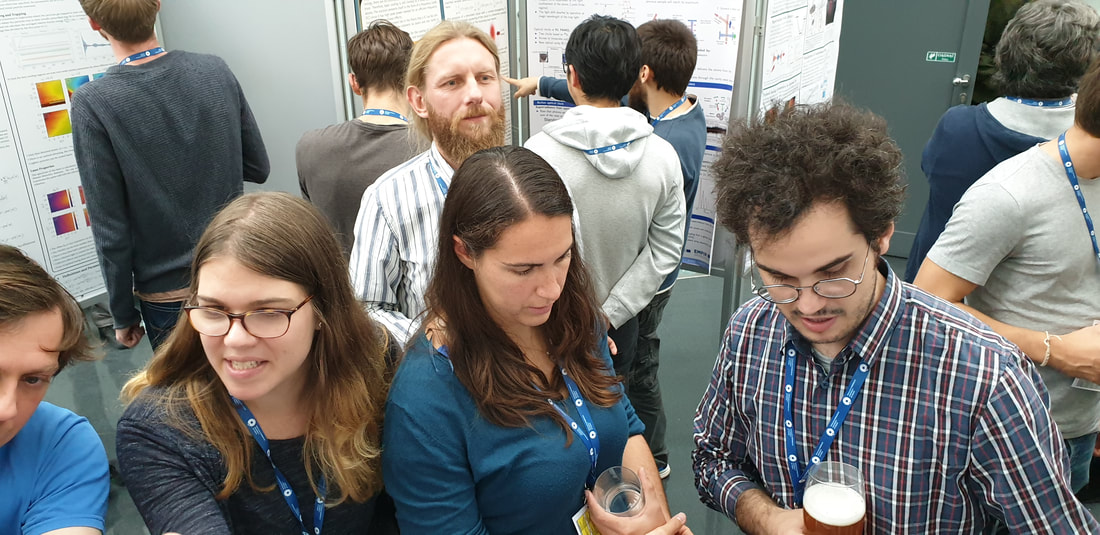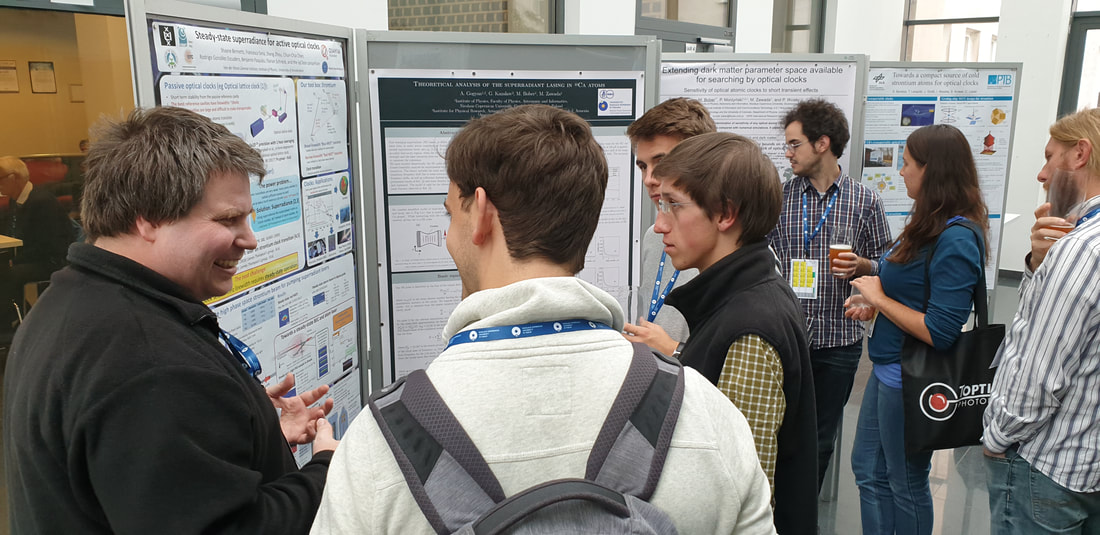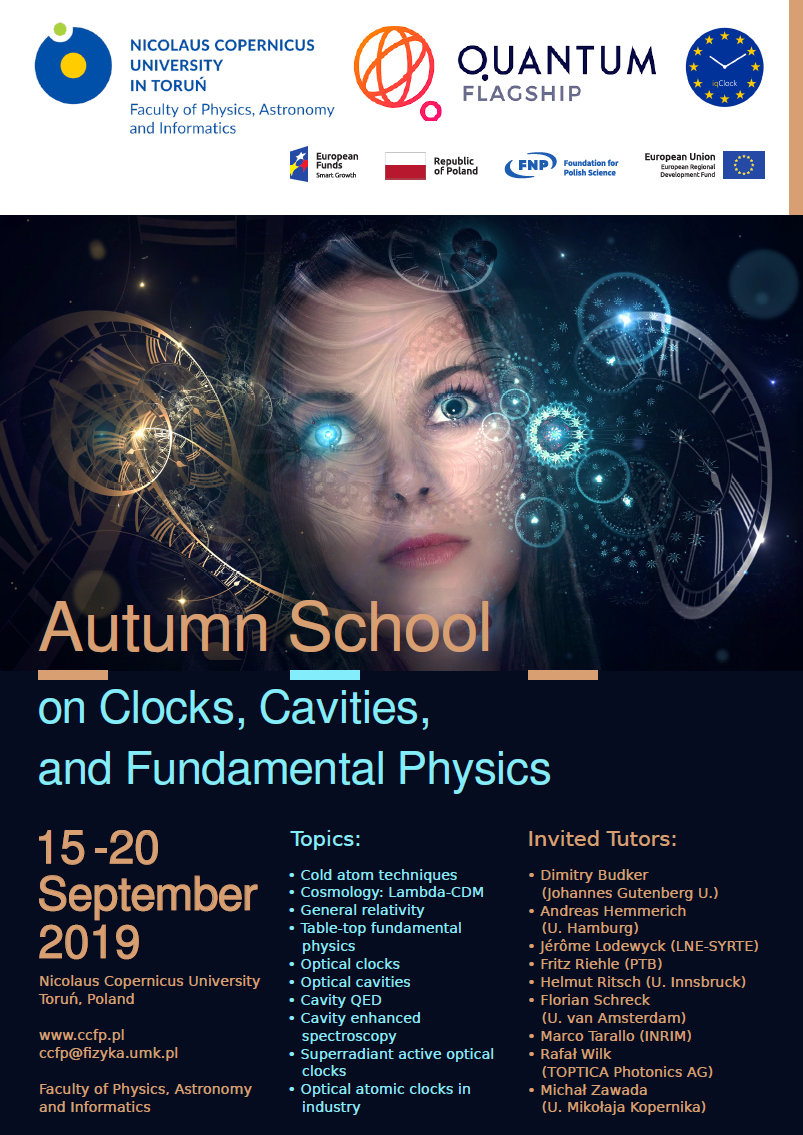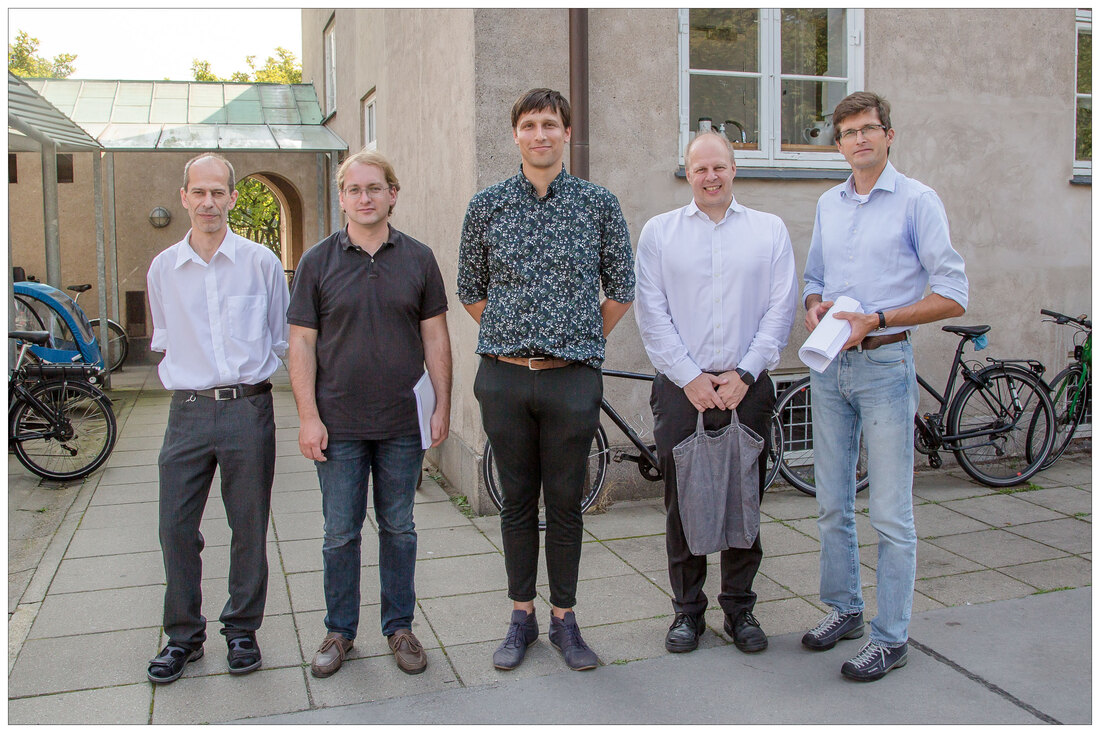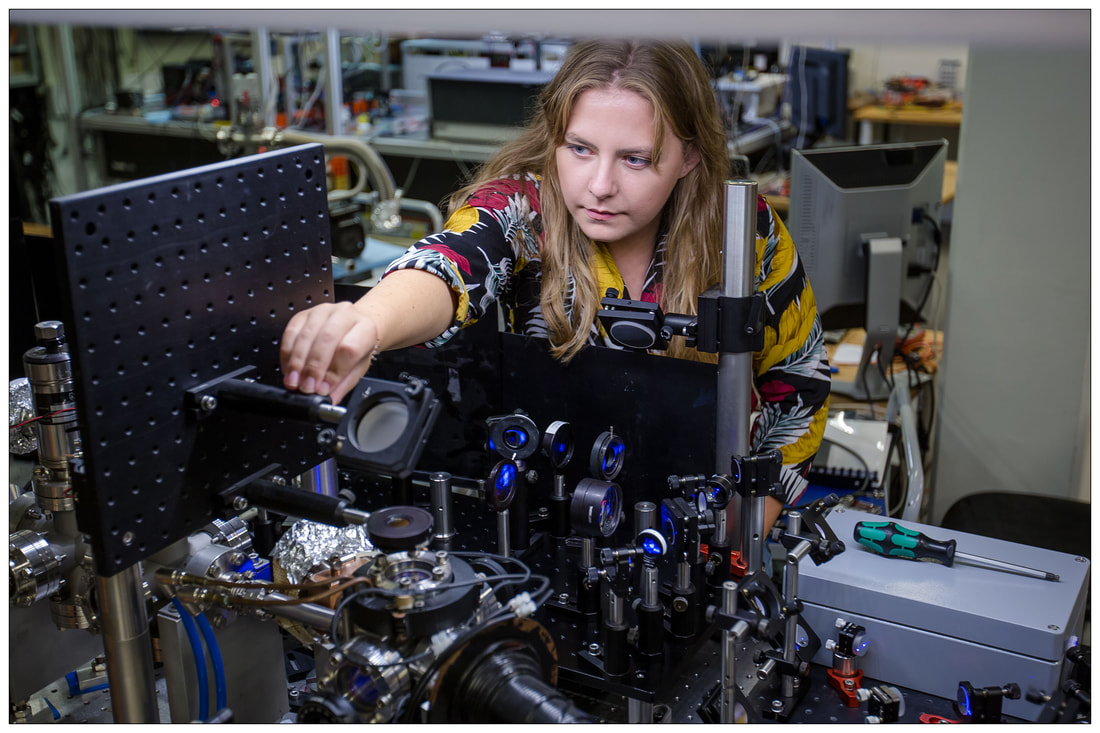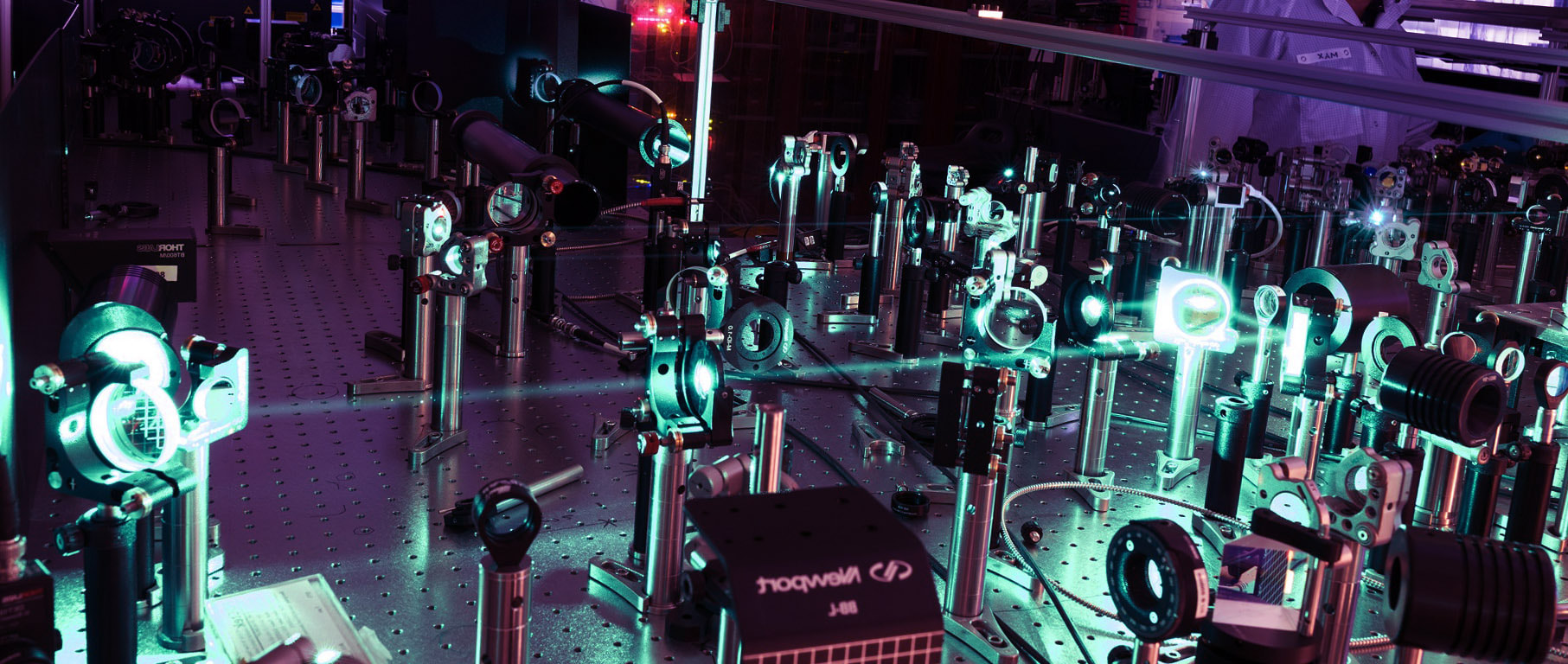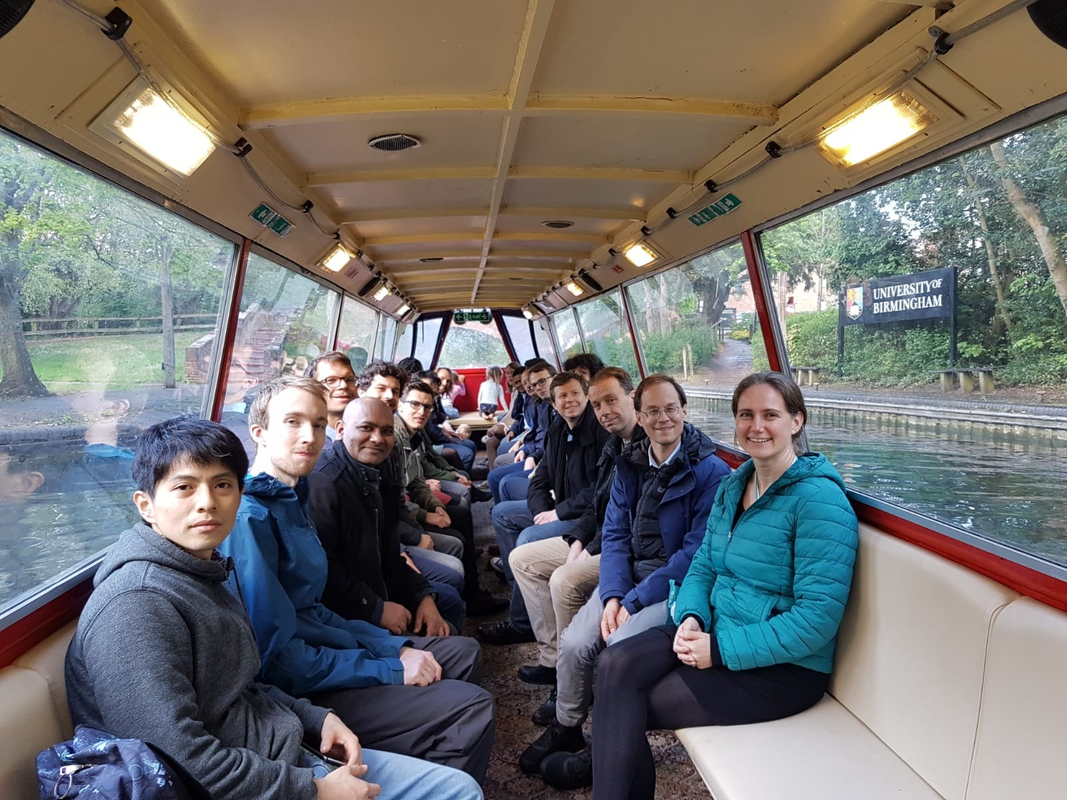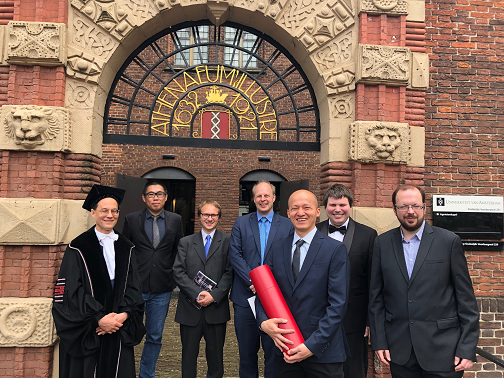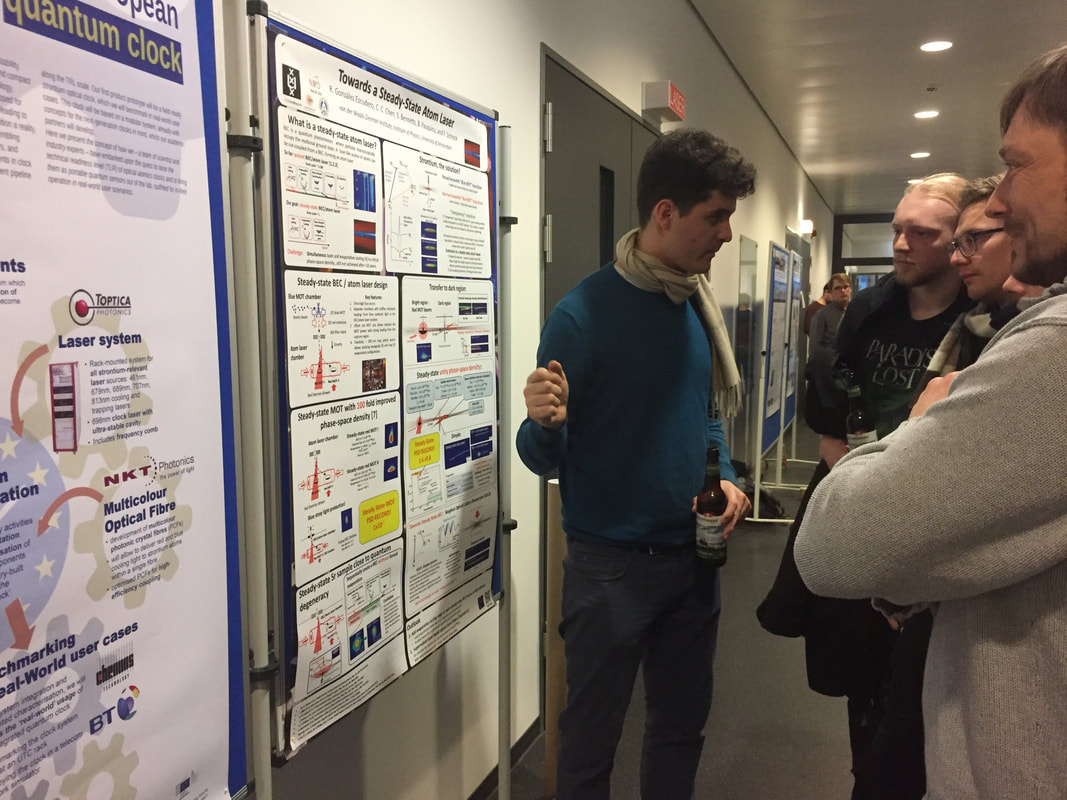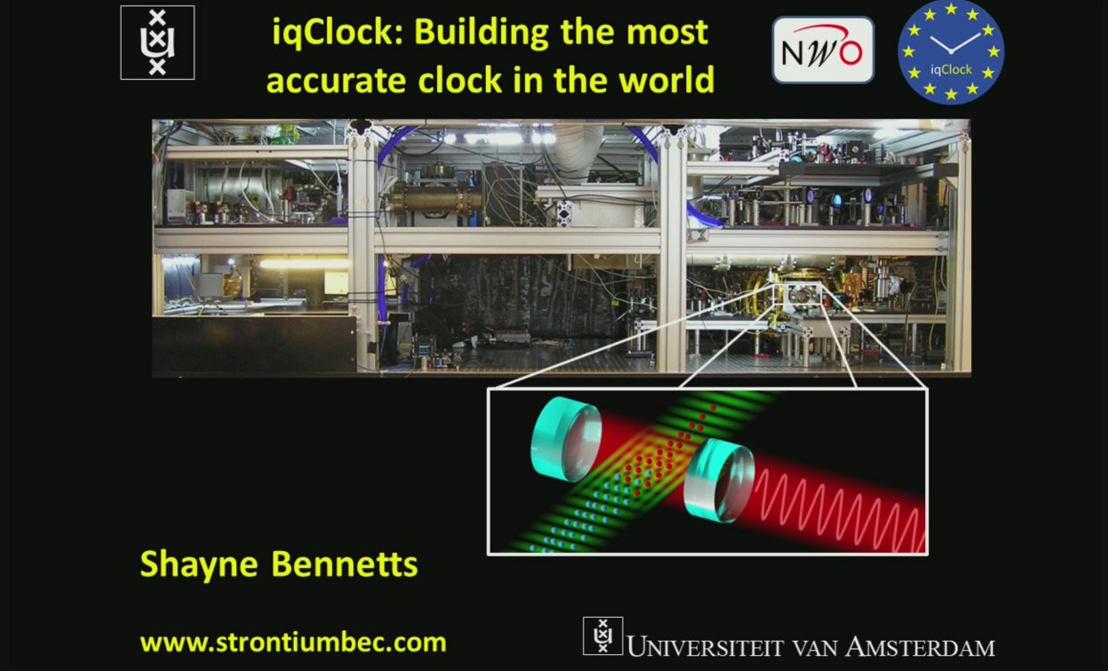1 December 2022: AQuRA project commences
|
Today a new project built on the achievements of iqClock kicked off. AQuRA (the Advanced Quantum Clock for Real World Applications) is an industry led consortium with 10 partners from across Europe who will collaborate over the next three and a half years to make state of the art laboratory clocks robust and compact enough for real world applications.
Modern atomic quantum clocks are the most precise and accurate scientific instruments ever created. Currently, these so-called optical atomic clocks are mostly found in physics laboratories, often filling an entire laboratory. The AQuRA-consortium brings together European universities, industry partners and EU metrology institutes in an effort to make quantum clocks more robust and compact. This will allow real-world applications like significantly improved and faster telecommunication networks, or underground exploration using fluctuations in gravity. The consortium received a €7.5 million European Commission Horizon grant to achieve their goals over the next three and a half years. |
24 March 2022 - iqClock Industry Day - register now!
|
Kicked-off in October 2018, the iqClock EC Quantum Flagship project is coming to a close this Spring. On this occasion, we invite interested parties from across industry and academia to join us for the iqClock Industry Day. We will showcase the results of the project and draw up perspectives for the next steps towards the commercialisation of optical lattice clock technology including routes to end user cases for optical clock technology.
With the iqClock Industry Day, we offer a stage to stakeholders from inside and outside the iqClock Consortium. The two sessions include time for panel discussion with the session speakers. The event is free to attend will be fully virtual with details on how to access the Zoom meeting communicated a few days prior. Programme and registration |
22-24 November 2021 - MoSaiQC autumn school - register now!
|
Between 22-24 November 2021 the MoSaiQC Autumn School takes place in-person at the University of Birmingham. The theme of the Autumn School is 'ATC Industrial Perspective on Quantum Technologies'. Early-Stage Researchers and network members are invited to take part in the school. Additionally, there are limited spots available for external PhD-students (£95,-) to join the programme. Please have a look at the (concept) programme of the MoSaiQC Autumn School to the right. Click here to go to the official registration form.
Subsequently, on 25 and 26 November the iqClock network meeting will take place. This meeting is only open for network members and Early-Stage Researchers of the MoSaiQC project and iqClock project. More information about the programme will be published shortly on this page. |
2 September 2021 - What is time, and how is it measured?
|
What is time, and how is it measured? The first episode in iqClock's new edutainment series about atomic clocks and timekeeping is now out! Watch new episodes every other Thursday on our YouTube channel.
16 September: Episode 2 published, The history of timekeeping |
|
9 July 2021 - New vacuum chamber installed in Toruń
4 March 2021 - Talk: Continuous-wave BECs and superradiant clocks
|
Florian Schreck was invited to give a talk about continuous-wave BECs and the iqClock superradiant clock project in the Quantum Science Seminar on 4 March 2021 (YouTube, pdf, pptx). During this talk Rodrigo González Escudero gave a short tour of the atom laser lab (YouTube) and Francesca Famá showed the iqClock lab (YouTube).
|
|
18 January 2021 - Talk: Quantum sensing with ultracold atoms
|
On 7 December 2020, as part of the Science Week for QuSoft's 5-year lustrum, Florian Schreck presented a public lecture about Quantum Sensing and the iqClock project. The lecture can now be watched back on YouTube - click the video on the right to do so. After the public lecture, the video also includes a virtual lab tour!
|
|
3 November 2020 - iqClock presentation at European Quantum Week
|
Florian Schreck presented iqClock during the European Quantum Week.
|
|
14 August 2020 - A collaboration between art and science
|
Florian Schreck’s research on quantum clocks and ultracold atoms has been selected as one of 13 projects to be featured in the Studiotopia initiative for collaborations between art and science. For a period of 17 months, artists Dmitry Gelfand and Evelina Domnitch will collaborate with Schreck in a residency programme aimed towards sustainable development.
More information about the science, the art and the project on the UvA-Institute of Physics website. |
1 April 2020 - iqClock video
|
We produced a short video introducing the iqClock project and the twelve partner institutes that make up the consortium. Click on the embedded video to the right to watch it, or visit our YouTube channel.
|
|
3-4 March 2020 - Fourth iqClock consortium meeting
18 February 2020 - Copenhagen image selected for Phys. Rev. A 'Kaleidoscope'
|
The image you see here shows the velocity-dependent emission and absorption dynamics of a superradiant pulse from mK strontium.
It appears in the new iqClock paper "Lasing on a narrow transition in a cold thermal strontium ensemble" that was published in Physical Review A by the Copenhagen group of Stefan A. Schäffer, Mikkel Tang, Martin R. Henriksen, Asbjørn A. Jørgensen, Bjarke T. R. Christensen and Jan W. Thomsen. Physical Review A selected the image as part of their monthly Kaleidoscope. |
24 January 2020 - iqClock at Viva Fysica
25 October 2019 - PhD Shayne Bennetts
|
Congratulations to iqClock's Shayne Bennetts (University of Amsterdam) for successfully defending his PhD thesis!
Shayne's thesis is titled '1000 times closer to a continuous atom laser: Steady-state strontium with unity phase-space density'. |
22-23 October 2019 - Third iqClock consortium meeting
5 October 2019 - Open Day in Amsterdam
|
iqClock was present during the Sciene Park Open Day at the University of Amsterdam. Around 1000 visitors of all ages came to the Open Day; many visited the iqClock lab, followed a short lecture about clocks and timekeeping, and were able to see a magneto-optical trap (one of the key components of our optical atomic clocks) in action.
|
2 October 2019 - Girls' Day in Copenhagen
30 September 2019 - A coated vacuum chamber
|
Optical atomic clocks require good vacuum chambers. One of the crucial aspects of these chambers is the coating. iqClock partner Acktar recently developed a coating for the vacuum chamber of one of our new ultra-precise clocks and made a nice video to present it.
|
|
16 September 2019 - Open positions
The European Innovative Training Network MoSaiQC has 15 open PhD positions related to work on iqClock.
15-20 September 2019 - Autumn School
|
Our Autumn School on Clocks, Cavities and Fundamental Physics in Toruń is in full swing. Here, students and researchers are discussing during the poster session. (For more info on the Autumn School, see the announcement below or the school's website.)
|
15-20 September 2019 - Autumn School on Clocks, Cavities and Fundamental Physics
|
The iqClock Quantum Flagship consortium is pleased to announce the upcoming Autumn School on “Clocks, Cavities, and Fundamental Physics”, which will take place at the Institute of Physics, Nicolaus Copernicus University in Toruń, Poland, 15-20 September 2019.
The school welcomes students and postdocs from all over the world, and will focus on experiments and concepts that lie on the border of future optical atomic clocks, fundamental physics table-top experiments, and cosmology. Topics covered by the school include
Registration for the school is open until August 15, acceptance is on a rolling basis. The fee is EUR 200 and covers coffee breaks, lunches and the social program. Convenient accommodation can be booked through the conference secretary. Many choices for dinner are available at restaurants in downtown Toruń. For more information on the program, speakers, and registration, please see http://ccfp.pl/. We look forward to welcome you at the CCFP autumn school! |
28 August 2019 - PhD Stefan A. Schäffer
|
Congratulations to Stefan Alaric Schäffer (UCPH) for successfully defending his PhD thesis! In his work Stefan has investigated two approaches to cavity-enhanced clock operation using cold Strontium atoms – one based on cavity-enhanced spectroscopy, and one based on active lasing in the bad cavity regime, a forerunner for the superradiant lasers that will be built by the iqClock consortium. Additionally Stefan has taken part in the development of the Yb-clock at NIST, Boulder.
Stefan's thesis was titled Cavity-Enhanced Optical Clocks. In the picture, besides the proud laureate, are his supervisor Jan W. Thomsen and the committee consisting of Jérôme Lodewyck (LNE-SYRTE), Christain Lisdat (PTB), and Jörg H. Müller (NBI - UCPH). |
2 October 2019 - Girls Day in Science, Copenhagen
|
iqClock will be present at the Girls Day in Science on 2 October at the Niels Bohr Institute in Copenhagen. The program (in Danish) can be found here: https://kvinderifysik.dk/girls-day-in-science/.
|
5 June 2019 - Preprint: 'Superradiant Cooling, Trapping, and Lasing of Dipole-Interacting Clock Atoms'
A new iqClock-related preprint, Superradiant Cooling, Trapping, and Lasing of Dipole-Interacting Clock Atoms, was pre-published on the arXiv today. The authors are Christoph Hotter, David Plankensteiner, Laurin Ostermann and Helmut Ritsch (University of Innsbruck). The paper was submitted to Optics Express - OSA.
28 May 2019 - Preparing the autumn school
|
Mark your calendars: the iqClock autumn school on clocks, cavities and fundamental physics will be organized in Torún, Poland, from 15-20 September 2019. The schedule is still being completed, but if you're interested you can already check out the web site and the poster for the school. Keep an eye on this space for more info once the program is finalized!
|
2-3 May 2019 - Second iqClock Consortium Meeting
26 April 2019 - PhD Chun-Chia Chen
31 March 2019 - iqClock at DPG Spring Meeting
|
iqClock was present at the DPG Spring Meeting in Regensburg, Germany. Here we see iqClock's Rodrigo González Escudero (UvA) explaining atom lasers to his colleagues.
|
29 March 2019 - First iqClock preprint
The first iqClock-related preprint, Lasing on a narrow transition in a cold thermal strontium ensemble, was pre-published on the arXiv today. The authors are Stefan A. Schäffer, Mikkel Tang, Martin R. Henriksen, Asbjørn A. Jørgensen, Bjarke T. R. Christensen and Jan W. Thomsen (NBI Copenhagen). The paper was submitted to Physical Review A.
25 January 2019 - Video: iqClock - Building the most accurate clock in the world
|
During the annual Viva Fysica meeting for high school teachers and pupils in Amsterdam, Shayne Bennetts (UVA) gave a popular science talk iqClock: Building the most accurate clock in the world. The talk gives a nice overview of the methods and goals of the iqClock project. It can be watched on the UvA website by clicking here.
|
